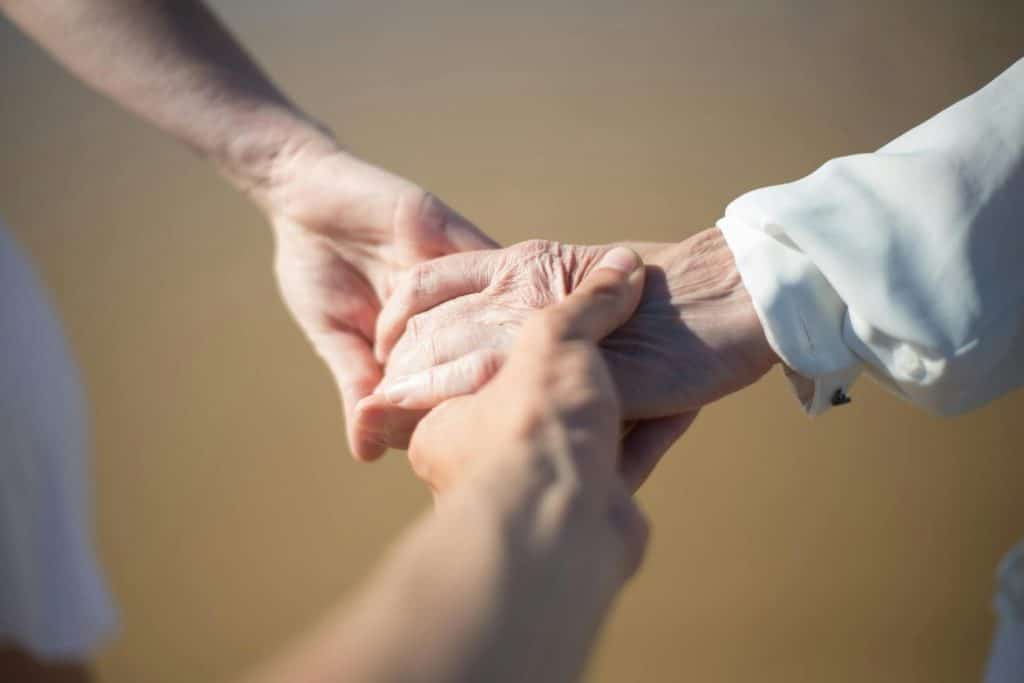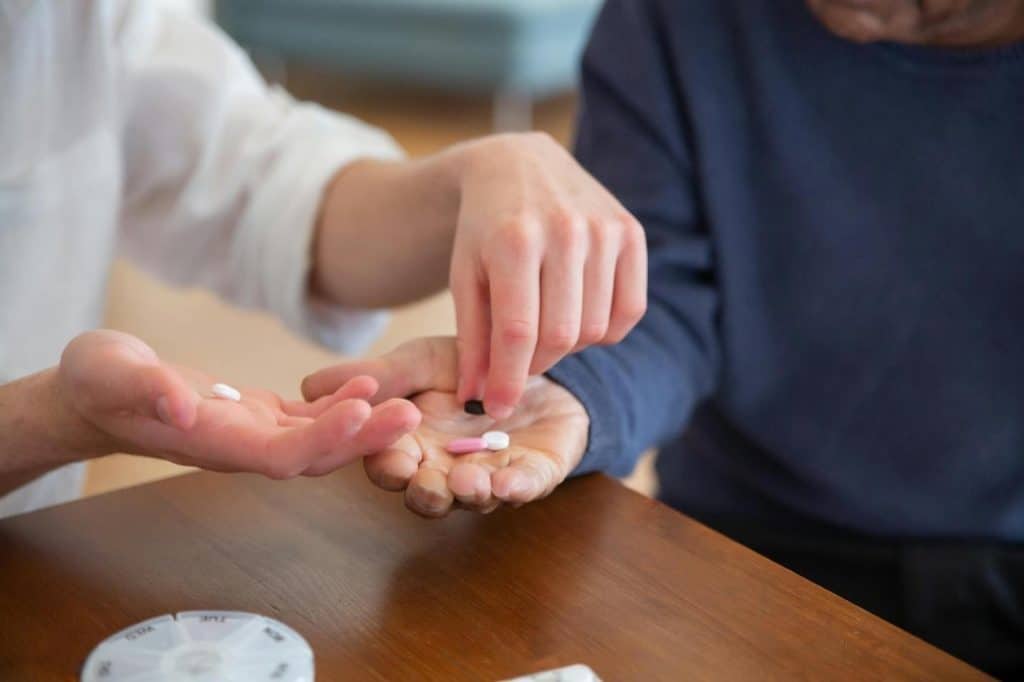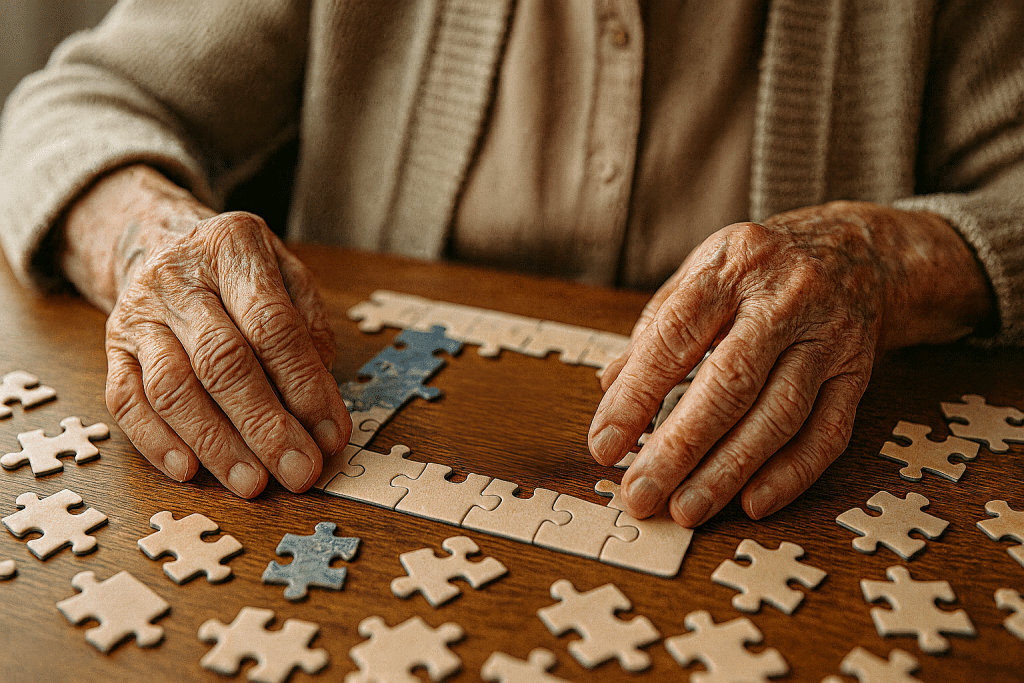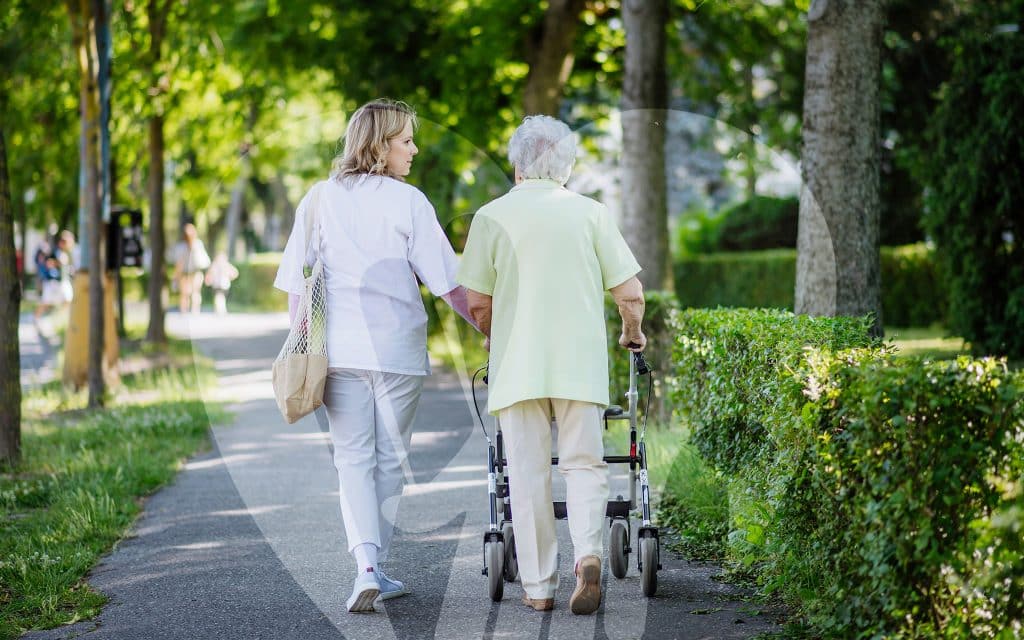Tip 1: Maintain a balanced diet at home
A healthy diet is essential for health and well-being in old age. Whenever possible, focus on meals rich in fiber, lean proteins, fruit, vegetables and make sure you stay well hydrated throughout the day.
In the context of home support, caregivers can help plan and prepare light, tasty meals adapted to the elderly person’s dietary needs, whether it’s to control blood pressure, diabetes or other conditions.
In addition, maintaining regular meal times as part of a healthy routine helps to avoid long periods of fasting and helps to prevent nutritional deficiencies, strengthen the immune system and maintain energy levels.
Tip 2: Encourage exercise with caregiver support
Physical activity, however light, is essential for preserving mobility, autonomy and even good humor in old age.
Short walks, stretches or simple exercises at home can make a huge difference to everyday life. With the support of the caregiver, these activities can be adjusted to each person’s pace and abilities, always safely.
Keeping the body moving helps to prevent the loss of muscle mass, improves circulation and contributes to the prevention of falls at home, thus promoting greater confidence in every gesture.
Tip 3: Ensure hygiene and safety at home
Hygiene and safety at home are fundamental pillars of quality of life.
Start by adapting the environment: remove loose rugs, install grab rails in the bathroom, ensure adequate lighting and keep spaces free of obstacles.
In addition, reinforce daily hygiene with personal care (assisted bathing, oral care, intimate hygiene) supervised by home help.
These measures reduce the risk of accidents and infections, fostering a safer and more comfortable space for the elderly.
Tip 4: Support your mind and memory with simple activities
Keeping your mind active is just as important as looking after your body.
Simple activities such as reading, listening to music, doing puzzles, playing cards or talking about moments from the past help to exercise the memory and stimulate thinking.
The ideal is to integrate them into the daily routine, with time and patience, always respecting the person’s rhythm. This type of stimulation contributes to emotional and cognitive well-being, and is a practice recommended by the professional caregivers involved in nursing care at home.
Tip 5: Encourage socialization, even at home
Isolation is unfortunately still one of the biggest challenges in the lives of many older people.
Visits from family or friends, video calls, playing games together or just chatting are all effective ways of reinforcing a sense of belonging and bringing more joy to everyday life. Even without leaving home, you can create bonds and keep the connection with others alive.
In the context of home support, the caregiver can be a fundamental presence, stimulating these interactions and acting as a bridge between the elderly person and their network of affections.
Tip 6: Monitor appointments and medication at home
Health management is essential to bring peace of mind to the daily lives of people who are getting older.
It is therefore extremely important to keep track of appointments, exams and medication. Simple tools, such as calendars or apps, help you to organize the times you take your medication and visit the doctor, avoiding forgetfulness.
Collaboration between the family, the elderly person and the professionals in a home care service ensures that health care is carried out rigorously, preventing complications and guaranteeing continuity of care.
Tip 7: Emotional support and daily monitoring
Finally, there is the affective and psychological dimension, which should never be ignored.
Being present, listening carefully, showing empathy and conveying security are also part of basic care in old age. Regular company and constant dialog help reduce feelings of loneliness and boost self-esteem.
A qualified and sensitive caregiver can make all the difference to an elderly person’s daily life. Hands Care, for example, strives for humanization and proximity in its service, constantly communicating with the family and adjusting the care plan according to real needs.
To finish
Caring for an elderly person is a gesture that involves a series of dimensions, such as food, movement, safety, mental stimulation, health and, above all, affection.
Implementing these 7 tips into your daily routine, with the support of qualified professionals, is the best way to ensure quality of life and dignity during this stage.
If you’re looking for a reliable home care company with experienced caregivers and a personalized service, consider Hands Care as a reliable partner on your journey.
We are here to support, care for and accompany you, always with humanity and dignity. To find out more about our home care services or to schedule a visit, please contact us using our form.



